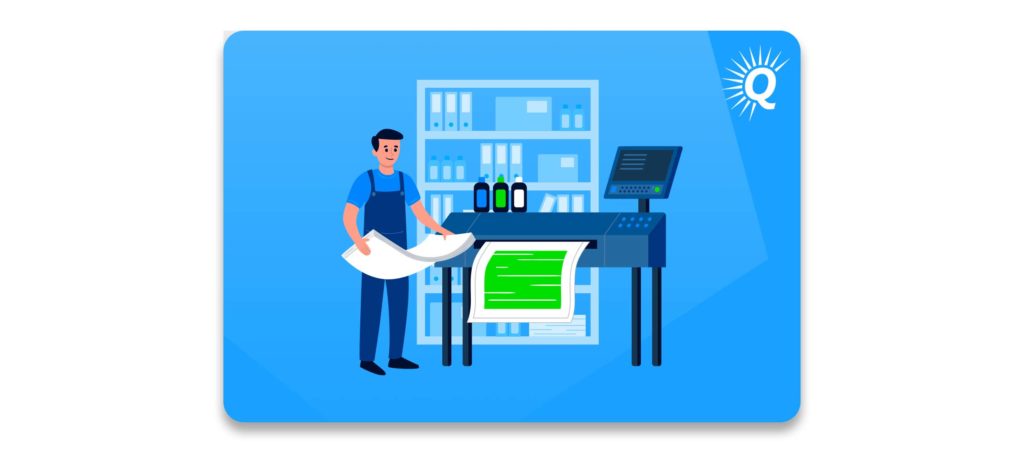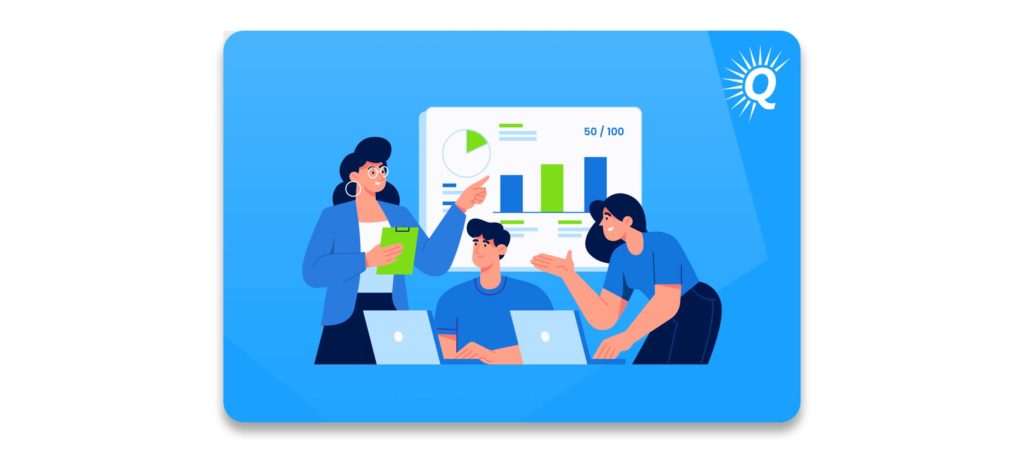Topics:
Never Miss a Beat - Get Updates Direct to Your Inbox
FILTER:


How to Get Your Business Ready to Sell
By Quiet Light
There are a lot of steps involved when it comes to selling your online business. In fact, the process of getting your business ready to sell should start well before you actually list it in the marketplace.
As a business owner, one of the smartest decisions you can make is to inform yourself about what the exit process looks like. Not only will doing so allow you to execute a smoother transition, but it will also help you receive a better purchase price and deal terms at closing.
In this article, we share actionable steps to help you prepare for a successful exit. We also discuss the process of valuing different businesses in the acquisition marketplace.
Related Articles:
4 Ways to Increase the Value of Your Online Business
7 Things to Consider When Selling Your Online Business


Process of Preparing to Sell a Business
There are a few distinct stages to be aware of when preparing to sell your business. These include:
- Standardizing and optimizing
- Getting a valuation
- Signing an engagement letter
- Creating your marketing package
- Listing your business for sale
Standardizing and optimizing your online business
One of the first steps in preparing to sell your business is making sure a new owner can easily step in and succeed.
Before going to market, take some time to organize and standardize your business as much as possible. In many cases, this includes creating standard operating procedures (SOPs) that detail all of the key activities in your business. If you’re able to provide the next owner with an “owner’s manual,” buyers will view your business much more favorably.
“Before going to market, take some time to organize and standardize your business as much as possible.”
In addition to providing a clear road map for the next owner, it’s also important to ensure all of your documentation and records are in order. Typically, you should be able to create a folder that contains all important documents. These may include business licenses, trademarks, patents, or other legal documents. Additionally, you’ll need to provide profit and loss statements on a monthly accrual basis. If you work with a qualified Advisor, they can guide you through each of these steps.
Getting a valuation
As soon as you’re able to provide each required financial statement (i.e. P&Ls on an accrual basis), a business Advisor can provide you with a free valuation. During the valuation process, they’ll be looking at all of your business’s cash flow and other details to determine its market value. Some of the elements they’ll examine include:
- Earnings
- Profit trends
- Business risks
- Documentation practices
- Other qualitative factors that may affect the transferability of your business.
In the following section, we’ll go into more detail about the internet business valuation process. For now, just understand that your business’s value is based on several different factors that are all examined during the valuation process. Additionally, your Advisor should also provide you with an overview of your business’s strengths and weaknesses. If you decide to hold off on selling, you can use that feedback to make strategic changes to improve your business’s performance and value.
Thinking of Selling Your Business?
Get a free, individually-tailored valuation and business-readiness assessment. Sell when you're ready. Not a minute before.
Signing an engagement letter
Once you know your business’s value, it’s time to decide whether or not you’re ready to sell. If you decide to move forward with a broker, the next step is to sign an engagement letter. Essentially, the engagement letter outlines the terms of your working relationship with them. Typically, it specifies the responsibilities of each party, the exclusivity period, and other relevant details.
Creating your marketing package
Before listing your business for sale, your Advisor will create a customized marketing package. Your marketing package should provide a thorough and detailed summary of your business’s past performance. It should also detail any opportunities it faces moving forward. This is what potential buyers will be looking at when they inquire to get more information about your business.
Some sellers might consider only presenting the attractive qualities of their business. Don’t do that. Throughout the entire process, it’s critical that you’re open and transparent when representing your business. Not only is that the right thing to do, but it’s also necessary to ensure the deal goes smoothly. More than likely, the buyer will discover any attempt at dishonesty during the due diligence process. Of course, that would destroy trust and likely derail the deal.
“Your marketing package should provide a thorough and detailed summary of your business’s past performance. It should also detail any opportunities it faces moving forward.”
Buy a Profitable Online Business
Outsmart the startup game and check out our listings. You can request a summary on any business without any further obligation.
Listing your business for sale
Once your marketing package is complete, it’s time to list your business for sale. If you’re working with a business broker, they’ll email your business listing to their list of highly qualified buyers. They’ll also present it on their website.
The days leading up to listing your business for sale are often busy, but during the listing day, you have the chance to take a deep breath. It’s a sort of “intermission” that takes place after the preparation phase and before you start communicating with potential buyers. Enjoy this day! It’s an exciting moment when you see your business available in the marketplace.
Steps for Valuing a Business for Sale
One of the more critical steps when preparing to sell your business is the valuation process. Although a business broker will be the one performing the valuation, it’s still important that you understand how the process works. Most online businesses are valued using the SDE multiple method.
SDE stands for seller’s discretionary earnings and represents the pretax profits a business generates before accounting for depreciation, amortization, owner’s benefit, and any one-time revenues or expenses that won’t be carried on to the new owner. Essentially, SDE reflects the annual income the business generates for a single small business owner. In all cases, calculating SDE requires creating a detailed add-back schedule.


Once SDE is determined, it is multiplied by “the multiple.” The multiple is simply a number that reflects how valuable your business is relative to its SDE. There are four primary elements that determine the multiple, and therefore, its business value. These are the elements a business professional business broker will examine when doing a valuation. At Quiet Light, we call them the Four Pillars of Value. They are:
- Growth
- Risk
- Documentation
- Transferability
“SDE reflects the annual income the business generates for a single owner.”
Growth
All else being equal, your business will be worth more if it has positive growth trends. If your SDE has been steadily increasing over the past 12 months, buyers will view your business as more desirable.
In addition, buyers will pay attention to growth potential (including strategic buyers). In other words, if your business is poised to capitalize on an emerging market trend, it will be more valuable. Similarly, if you have a clear strategy in place to launch several promising products in the next 12 months, that could add value to your business as well.
“All else being equal, your business will be worth more if it has positive growth trends.”
Risk
Not surprisingly, buyers are wary of businesses that are exposed to significant risks. If your e-commerce business relies on just one or two products (a.k.a. “hero products”) for the majority of its revenue, buyers will likely be less interested. Supply chain instability and volatile market conditions are two additional risks that most buyers pay attention to.
“Buyers are wary of businesses that are exposed to significant risks.”


In some cases, sellers choose to hold off on selling in order to address business risks. While doing so may delay the sales process, it can also be a great way to receive a higher purchase price when you finally do end up selling.
Transferability
All else being equal, businesses that can be easily transferred to business owners are more valuable than those that are difficult to transfer.
If your business is relatively easy to operate and doesn’t rely on your own personal identity, it’s likely highly transferable. Content websites that earn passive income are the classic example of businesses that are easy to transfer.
On the other hand, if your personal identity is intertwined with the branding, it might be more challenging to sell. In such a situation, it might be best to disentangle your own likeness from the company before going to market.
Documentation
As mentioned above, it’s essential to have clear and complete records when selling your business.
For starters, clear documentation makes it easier for buyers to understand the story of your business. If you’re able to provide complete financial records, sales reports, supplier agreements, and other key information, your business’s performance becomes much clearer and more tangible.


What You Need in Order to Sell a Business
It’s always best to know what to expect when selling your business. There are several items you should organize before trying to sell your business. These include:
- Financial statements
- All legal documentation
- Standard operating procedures
As mentioned, nothing can happen until you’re able to provide profit and loss statements that show your business’s performance on a monthly accrual basis. Not only are these necessary for the valuation process, but they also provide prospective buyers with invaluable insight into the nature of your small business. Additionally, try to gather all invoices and sales reports in one consolidated location. These can be invaluable in helping prospective buyers identify opportunities to increase revenue.
Legal documentation shouldn’t be difficult to provide, but it’s still important to have on hand before going to market. When creating a folder of legal documents, be sure to include supplier contracts, trademark and patent registrations, small business licenses, permits, insurance statements, and any other relevant legal information a prospective buyer might be interested in.


Although SOPs aren’t necessarily essential during the initial stages of selling your business, you’ll want to be sure to have them on hand by the time you start communicating with prospective buyers. Therefore, instead of waiting until the last minute to create SOPs, try to have them complete before the process begins to get maximum value at exit. Not to mention, there’s a lot of value to you in standardizing your business’s operating procedures.
How the Type of Business Affects How You Sell It
Although the process of selling an online business is relatively similar across industries and business models, there are a few elements that can affect the process.
For a number of reasons, businesses that generate passive income are among the most highly demanded in the acquisition marketplace. If the owner of your small business only needs to work a couple of hours per month, there’s a good chance you’ll encounter a lot of interest among potential buyers.
Additionally, if the skills required to operate your business are relatively ubiquitous, it will be easier to find an interested buyer. On the other hand, if the owner needs to have rare, specialized skills or qualifications, it might be more difficult to find the right business buyer.
Despite the differences between businesses, the best practices for selling is generally consistent: standardize your business operations, receive a valuation, sign an engagement letter if you decide to work with an Advisor, and then list your business for sale. By following this framework, you’ll be in a great position to execute a smooth and rewarding exit.
Thinking of Selling Your Business?
Get a free, individually-tailored valuation and business-readiness assessment. Sell when you're ready. Not a minute before.





